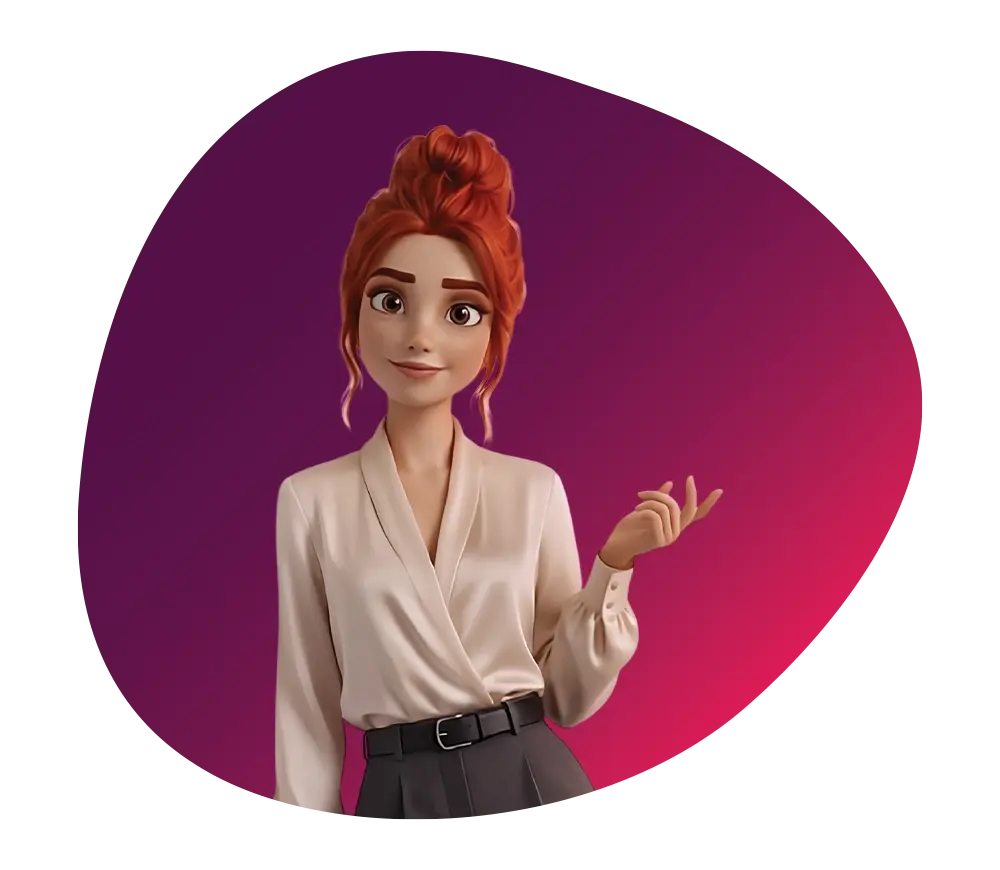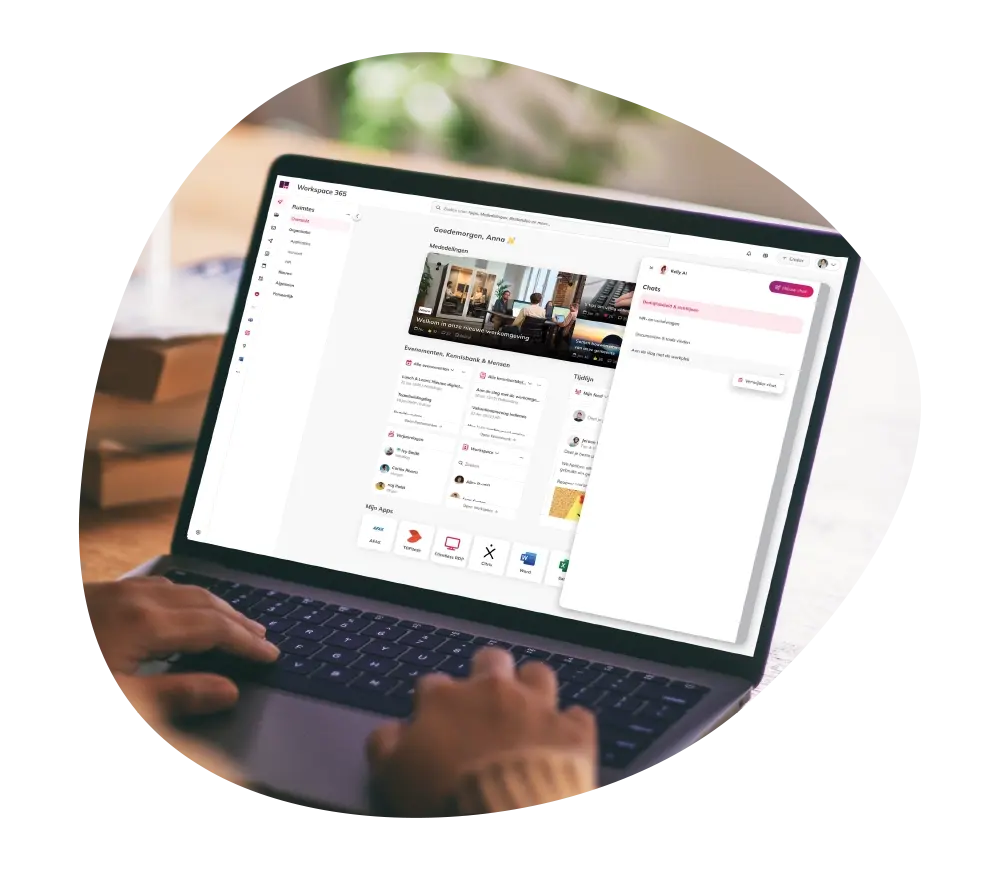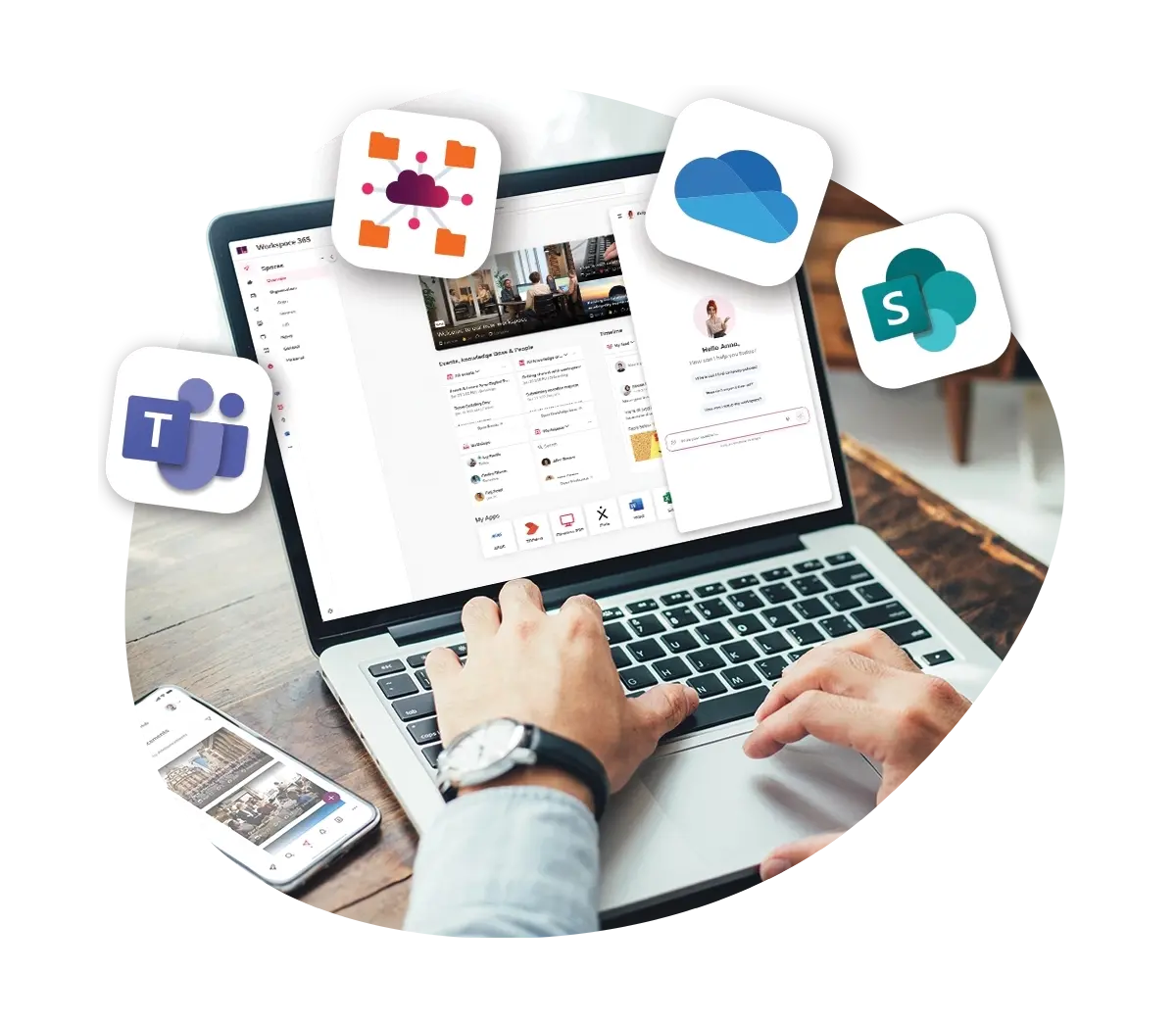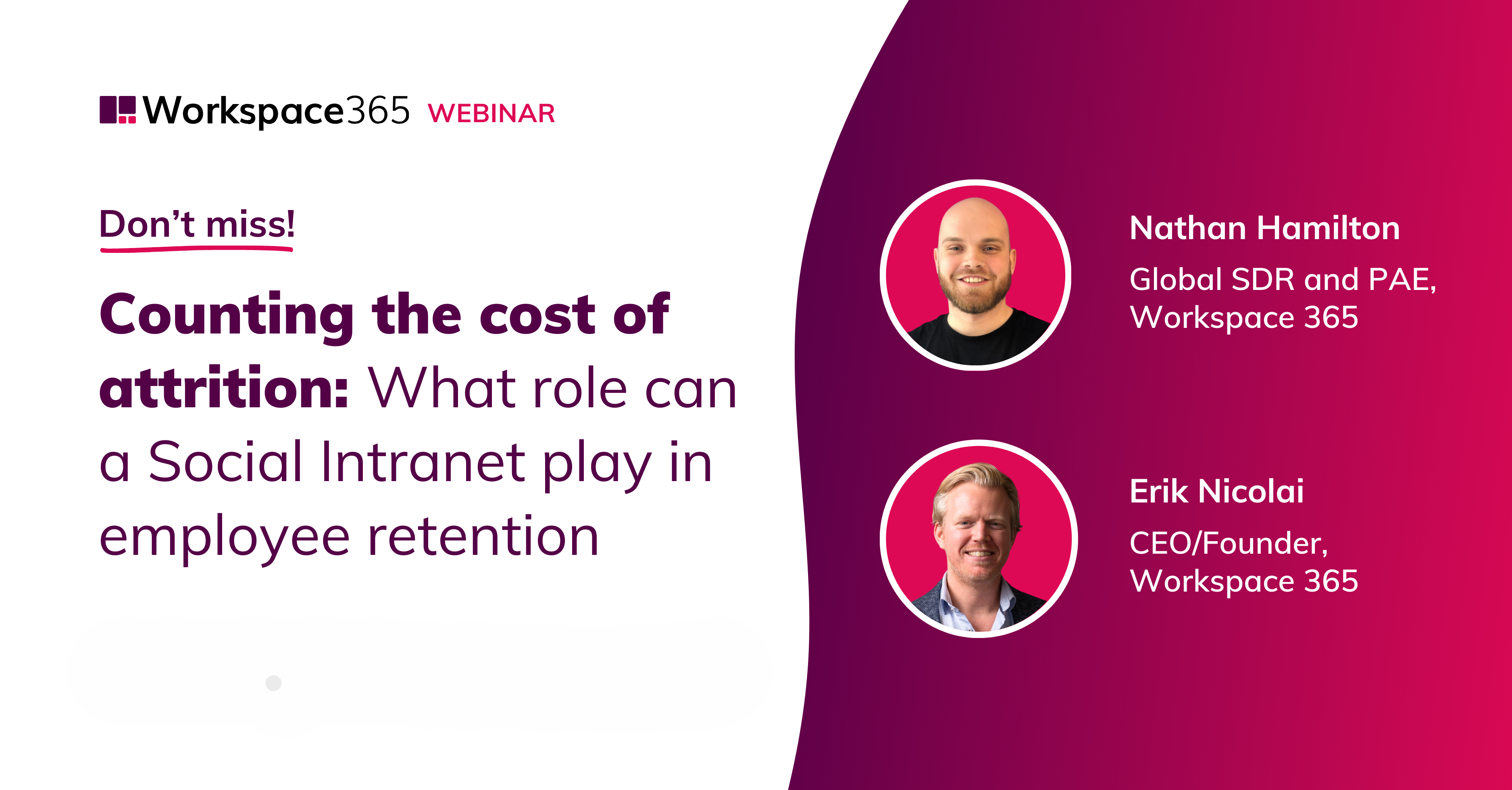Overwork, burn-outs, depression, reduced productivity and creativity: the consequences of information stress are diverse. But what exactly is information overload or stress? What are its causes? What harmful consequences can it lead to? And how can you prevent it - as a company and as an individual?
Information: a great benefit with a sour aftertaste
Many people suffer from it: information overload. Sure, thanks to information, we can communicate quickly and extensively with others, we know what colleagues are doing and we know what is happening in the world. But for many people, it leaves a sour taste in the mouth. The overwhelming amount of information blurs the line between valuable information and distraction and makes it harder for them to keep track of and filter information. The result is information overload.
What is information overload?
We refer to information overload or stress when people suffer from the fact that the amount of information they are confronted with is greater than their capacity to process it. It is not known exactly how many people suffer from this, but in a large study, one in five Americans confirmed they suffered from it.
Has this always been the case?
Perhaps, at least since the cognitive revolution 70,000 years ago. Already in the thirteenth century, for example, people were complaining about the large amount of information they had to take in. Two great revolutions have contributed to the information fatigue that many people experience today.
Since the invention of printing by Gutenberg around 1430, existing information can be quickly replicated. Digitisation of content and ICT developments such as the rise of the Internet have made the distribution of new information much easier, cheaper and more accessible. As a result, in the last ten to fifteen years, much more information has been created than in the entire history of mankind.
What are the causes of information overload?
The gigantic mountain of information is of course at the root of the problem of information stress. Because we all have access to the internet, smartphones and social media, all information is always available. E-mails, apps, photos, videos and text messages. On and in Facebook, Twitter, Instagram, news media, apps, websites and business presentations... This is only a fraction of all the information we take in. Or - more accurately - that is fired at us.
We consume a lot of information that previously did not exist or which we did not have access to, but which we now consider to be indispensable. Think of foreign sources, blog posts of colleagues or competing companies, online research and the intranet.
The smartphone, in particular, has contributed greatly to the information stress issue. All that information is now in your pocket and accessible with a few taps on the screen. We have a different app for everything, which send us all kinds of messages and notifications. An accusing finger is often pointed at Big Tech companies such as Facebook and Google, who fill our daily lives with all kinds of addictive triggers such as push and chat messages, updates and offers.
Finally, some experts, such as Belarusian philosopher Evgeny Morozov, suspect that a lack of boredom also contributes to the problem. With a smartphone in your pocket, you never have to be bored again, but they say boredom is a good thing, among other things, to let everything sink in.
The dangers of information overload
Psychologists report that information stress can exhaust and demoralise us, resulting in symptoms similar to attention deficit disorder (ADD). Ultimately, this can lead to overwork, burn-out or depression. It is one of the causes of the alarming increase in burn-outs in recent years: as many as one in ten Europeans, for example, have feelings resembling a burn-out.
Psychosomatic complaints
Information stress can lead to what is called psychosomatic complaints, or physical complaints that are caused by psychological factors. The author Linda Stone, for example, coined the term 'email apnoea' for the phenomenon that some people experience a subconscious interruption of their breathing when they are dealing with email.
Reduced productivity
With all these effects, information stress has a detrimental effect on productivity. After all, employees who are distracted by currently irrelevant information cannot spend their time doing useful work. Moreover, it takes a lot of time and cognitive energy to get back to the work we were doing before we were distracted by a notification or a new message.
Employees could take as long as 24 minutes before they are fully focused on the task they were doing before opening an email. This is because they also read other emails or send messages to friends, but also because they spend time scrolling through open applications to find out what they were doing again and get distracted by it again. Seeing an unread email while completing a task is said to lower your effective IQ by up to ten points. Even young people - who have grown up in a jungle of online distractions - appear to need uninterrupted periods of time in order to complete challenging tasks effectively.
Decline in creativity
There also seems to be a connection with a decrease in creativity. If you are swamped with information, you have no room in your head for new insights. Research has shown, for example, that we are less creative when all sorts of interruptions make for a fragmented working day.
Other consequences
Finally, information stress can lead to general unhappiness, addiction and saturation: you get fed up, the information no longer affects you and you become superficial.
What can you do to prevent information overload?
There are many ways to make sure you experience less stress from the sea of information around you. Here are the most important ones.
Productivity management
Productivity methods and tricks help you to reduce the mental load, so that the balance between the amount of information and the processing capacity of your brain is more favourable. First of all, the methods and tricks should suit you, as everyone has their own unique character, skills and wishes.
You can, for example, follow certain methods by productivity experts, such as Getting Things Done by David Allen or Inbox Zero by Merlin Mann. Getting Things Done, for example, focuses on cleaning up your brain by making a list of everything that is buzzing around in your head. Basically, you write down everything that distracts you from your work. Then break down the tasks into things to do today, things to delegate, things to do this week and things to skip.
One common productivity tip is to 'eat the frog': start your day with the most important or unpleasant task, and then continue the day with the comfort of knowing that the worst or most important task is done.
It is also important to take sufficient breaks, preferably at least fifteen minutes for every two to three hours of work. Walking, taking a nap, listening to a few songs: it is not a waste of time but an investment. Your brain undergoes a reset, which makes you much more efficient in the long run and boosts your creativity.
Furthermore, save up all tasks that take less than two minutes and do them one after the other, do similar tasks in quick succession and stop multitasking immediately.
Attention management
Attention management is an extension of time management. However, it is not about how you manage your time, but your attention. You must be able to choose when and what to concentrate on. The idea is that you cannot manage time, but you can manage your own thoughts.
Key elements include controlling the environment by taking away things that can disturb you, optimising your technology for your attention and creating motivation because that is a breeding ground for attention.
Company culture, protocols and education
Everything starts with awareness: as an organisation, it can therefore be wise to educate your staff. Pay attention, for instance, to the impact that the email function 'reply all' can have and the necessity to communicate as concisely as possible.
Moreover, make sure that the problem is open for discussion. There is a perception that as much information and communication as possible is a positive thing, which means that employees are easily sucked into certain customs and are less likely to raise the alarm if the amount of information and communication could be reduced.
It may be desirable or even necessary to draw up certain protocols for information and communication or to abolish them, partly because many internal communications are experienced as useless by employees. Consider a company-wide agreement not to call, email, directly message or WhatsApp after six o'clock in the evening, unless the company would come to a standstill. Or stop sending weekly reports from your department to all department heads if this is purely for visibility purposes.
Changing your mindset
It is practically impossible to escape the information society, but you can influence how you climb that mountain of information. It takes some willpower, but you can change your mindset towards information. Above all, try to accept that there is too much information. You simply can't respond to every message or notification and you don't have time to take in all the blog posts, news items and social media channels.
More boredom
Boredom prevents information fatigue and stimulates productivity and creativity. Boredom means being completely deprived of outside stimuli, entertainment and activities. As a result, according to professor of cognitive neurology Erik Scherder, the function knows as 'default mode network' in the brain becomes quite active, allowing you to come up with new ideas. Not all experts agree, however; some see boredom as something negative that has no added value.
Other tips and tools
Finally:
- Keep the number of notifications to an absolute minimum.
- Organise your work so that you do not have to work very late (and raise the alarm with your manager if you often have to work late).
- Unsubscribe from email newsletters that you do not read or that you do not find interesting enough.
- Leave useless or uninteresting WhatsApp groups and tell people they can call or email you for important matters.
How a digital workspace helps
With a digital workspace such as Workspace 365, you have all your applications, documents and information in one place. You can also manage your tasks and notifications, and everything is easily searchable with the global search function. Therefore, you can better manage the work-related information that comes at you. In addition, you are able to both organise your work better and work smarter, giving you more mental capacity.
This is made possible by a number of features. Micro Apps, for example, allow you to complete one specific task from the digital workspace, so you don't have to spend all your time searching in external programs. Because you don't look around unintentionally, you have fewer distractions. Also, if you need to perform more actions, you can open the entire application with a single click.
Workspace 365's Activity Feed lets you bring information from different applications (like email and intranet) together in one environment. That means you don't have to keep switching between applications or get distracted by other information you see there. And, of course, it saves a lot of time.
An adaptive workspace based on Conditional Access can be modified to an individual or group, but it also adapts itself automatically based on someone's role, location, device and browser. Think of remote applications that are not visible to mobile devices or tiles within the digital workspace that turn grey when an application is not available for the browser in question.
As a result, people see only what is of interest to them and do not run up against irrelevant and distracting announcements or notifications. And fortunately, that makes that enormous mountain of information you have to climb a lot less steep.








